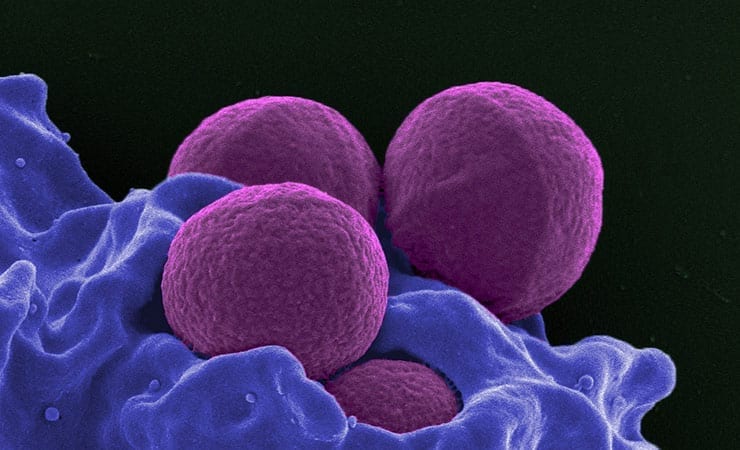MGB Biopharma, a biopharmaceutical company developing a novel class of anti-infectives, announced this week that it has secured £4.0m ($6.4m) to advance the development of its lead antibacterial, MGB-BP-3, against a range of Gram-positive infections including Clostridium difficile and methicillin-resistant and susceptible Staphylococcus species.
MGB-BP-3 is the first antibacterial for over a decade with a novel mode of action from a truly novel class to be developed globally.
The company has already developed an oral formulation of MGB-BP-3 for the treatment of C. difficile that is ready to enter the clinic, while an I.V. formulation indicated for the treatment of a range of systemic hospital acquired Gram-positive infections is entering late-stage preclinical development.
Funding of £2.7m has been provided by a syndicate of investors, led by Archangels, and includes existing investors Barwell PLC, TRI Cap and the Scottish Investment Bank, the investment arm of Scottish Enterprise. This brings the total funding secured by MGB Biopharma since the beginning of this year to £4.0m, including a prestigious £1.3m funding award announced in June by Innovate UK, formerly the Technology Strategy Board (TSB), under its Biomedical Catalyst programme.
“The danger posed by antimicrobial resistance to global public health is immense. Without new drugs to treat resistant bacteria we could easily slip into a “post-antibiotic era” where the chances of dying from a life-threatening infection could increase significantly. We believe that MGB-BP-3 has the potential to be the first truly novel antibiotic with a novel mode of action to be developed globally in more than a decade,” stated Dr. Miroslav Ravic, CEO of MGB Biopharma.
MGB Biopharma will use the funding to conduct a Phase I trial that will investigate the oral formulation of MGB-BP-3 for use in the treatment of C. difficile infections. Approximately 40 healthy subjects are expected to be enrolled into the single centre, double-blind, placebo controlled, Phase I trial to determine the safety and tolerability of single and multiple ascending doses of oral MGB-BP-3. The trial will also examine the effect of MGB-BP-3 on normal gut flora. It is expected to start in the first half of 2015.
In parallel to the clinical development of the oral formulation, MGB Biopharma will complete the pre-clinical development of the intravenous formulation of MGB-BP-3 and expects to be IND-ready by the end of next year. The intravenous formulation has shown activity in a broad range of hospital-acquired Gram-positive pathogens including resistant and susceptible Staphylococcus, Streptococcus and Enterococcus species. This new formulation of MGP-BP-3 is designed to broaden the utility of this novel antibiotic in the hospital environment where the medical need for new products to meet the challenge of microbial resistance is most acute.
John Waddell from Archangels, said: “We have been impressed with the progress in pre-clinical development made by MGB Biopharma since we first invested in the company. Today we are announcing a significant additional investment into the company by a syndicate of Scottish investors led by Archangels. This investment, together with the Biomedical Catalyst award, will enable the commencement of First-in-Man clinical studies. This important milestone represents an excellent starting point to spearhead the fight against antibiotic resistance. We are confident that MGB-BP-3 could transform therapy in an area where better and more effective treatments are desperately needed.”
Professor David Littlejohn, Dean of the University of Strathclyde’s Faculty of Science, said: “We are committed to working with health services, industry and policy-makers to address the global need for new and better medicines for disease prevention throughout life. We are, therefore, delighted that MGB Biopharma has received further funding and grant support to advance this novel drug.
“MGB-BP-3, originally developed at the University and which we licensed to MGB Biopharma, has shown significant potential against C. difficile and a range of other serious Gram-positive hospital-acquired infections. We believe that this drug could make a real difference for patients and hospitals where such pathogens are prevalent. We look forward to continuing our collaboration with the company to develop new treatments against a broad range of resistant infections.”
Source: MGB Biopharma press release, adapted.


